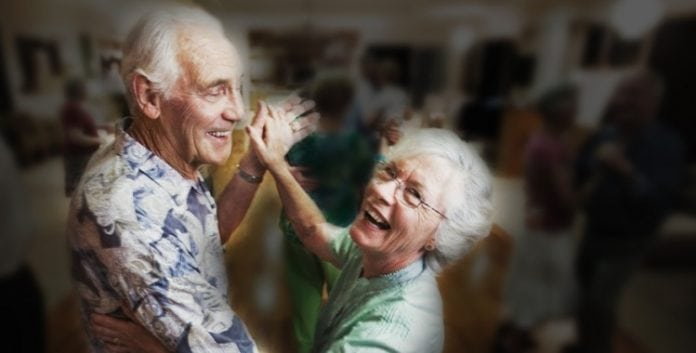
As we grow older we suffer a decline in mental and physical fitness, which can be made worse by conditions like Alzheimer’s disease. Older people who routinely partake in physical exercise can reverse the signs of brain aging, and dancing has the most profound effect.
A new study published in the open-access journal Frontiers in Human Neuroscience claims that exercise has the beneficial effect of slowing down or even counteracting age-related decline in mental and physical capacity.
Two different types of physical exercise – dancing and endurance training – both increase the area of the brain that declines with age. In comparison, it was only dancing that lead to noticeable behavioral changes in terms of improved balance.
Elderly volunteers, with an average age of 68, were recruited to the study and assigned either an eighteen-month weekly course of learning dance routines, or endurance and flexibility training. Both groups showed an increase in the hippo-campus region of the brain. This is important because this area can be prone to age-related decline and is affected by diseases like Alzheimer’s. It also plays a key role in memory and learning, as well as keeping one’s balance.
While previous research has shown that physical exercise can combat age-related brain decline, it is not known if one type of exercise can be better than another. To assess this, the exercise routines given to the volunteers differed. The traditional fitness training program conducted mainly repetitive exercises, such as cycling or Nordic walking, but the dance group were challenged with something new each week.
Steps, arm-patterns, formations, speed and rhythms were changed every second week to keep them in a constant learning process. The most challenging aspect for them was to recall the routines under the pressure of time and without any cues from the instructor.
These extra challenges are thought to account for the noticeable difference in balance displayed by those participants in dancing group. The researchers are building on their findings to trial new fitness programs that have the potential of maximizing anti-aging effects on the brain.
Everybody would like to live an independent and healthy life, for as long as possible. Physical activity is one of the lifestyle factors that can contribute to this, counteracting several risk factors and slowing down age-related decline. Dancing is a powerful tool to set new challenges for body and mind, especially in older age.
This study falls into a broader collection of research investigating the cognitive and neural effects of physical and cognitive activity across the lifespan.




































